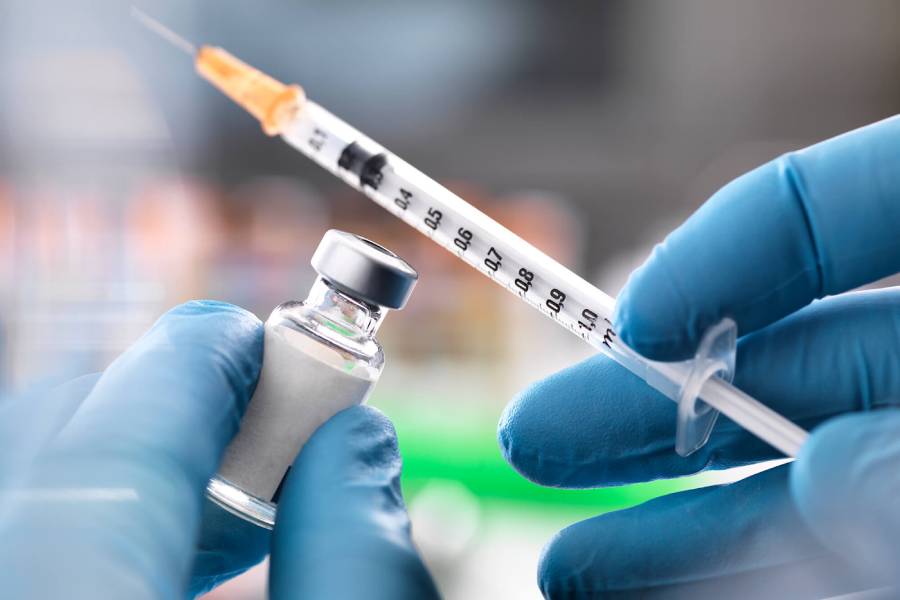What is Hormonal Theraphy?
Hormonal therapy is a comprehensive term applied to the use of hormones in treating many medical conditions. The most familiar types are oncologic hormone therapy for cancer patients and hormone replacement therapy. Which treats conditions caused by a shortcoming or the lack of a particular hormone in the body.
Hormones are molecules or substances that maintain chemical messages to different parts of the body via the bloodstream.

They are produced by various glands and are responsible for numerous physiological functions and processes. Which includes growth, metabolism of food, reproduction, sexual function, etc. Among the most typical hormones are amino acids, polypeptides, proteins, peptides, and steroids.
Depending on the disorder being treated, hormonal therapy uses several means of action. Some hormones are used to block other hormones from binding to their receptors, restricting their effects on certain processes. Other hormones repress the generation of distinct hormones while others eradicate or modify the structure of receptors to prevent them from binding to a targeted hormone. During hormone replacement therapy, the body receives the hormone it lacks to make sure its physiologic functions should not get disturbed.
Who Should Undergo and Expected Results?
Dr. Pratik Patil recommend Hormonal therapy to :
- Some cancer patients, specifically those whose cancer tissues are responsive to hormones. These include the breast, prostate, adrenal cortex, and endometrium. In some patients, hormonal therapy is done in conjunction with other types of pharmacotherapy modalities like chemotherapy and biotherapeutics.
- Those with Klinefelter syndrome, a disorder afflicting males and is defined by sterility, grown breast, and muscle defect
- Those with Turner syndrome – Female patients diagnosed with Turner syndrome may also be prescribed to undergo this therapy. These patients typically exhibit short and webbed necks with puffy hands and feet.
- Those with Addison’s disease, in which there is a shortage of steroid hormones produced by the adrenal glands. Symptoms of this disorder include low BP, an unusual craving for salt, hyperpigmentation or darkening of the skin, weight loss, and abdominal pain
- Children with growth hormone deficiency – These patients are normally put on hormone replacement therapy to avoid growth failure, less bone density, and hypoglycemia
- Menopausal women – The therapy can be recommended for women experiencing the damaging effects of menopause to manage signs such as hot flashes and vaginal dryness.
- Males with low levels of testosterone
- Those who undergo sex or gender reassignment – Sex or gender reassignment procedures also involve hormonal therapy to facilitate the articulation of desired sexual characteristics.
The effectiveness of hormone therapy for treating cancer depends on the harshness of the condition. The beginning stages of cancer have a greater probability of improvement and treatment compared to those in advanced stages. A combination of chemotherapy and hormonal therapy is the best treatment for the survival of cancer patients.
Those undergoing hormone replacement therapies report a major improvement in their symptoms. For example, children analyzed with Klinefelter or Turner syndromes generally attain normal adulthood while menopausal women report advancement in their condition following their treatment. This type of approach is considered long-term, normally lasting from several months to several years.
How is the Procedure Performed?
There are several modes of administering or orienting hormones into the body. Some patients are given oral medication while some therapies are injected subcutaneously. Some hormones are also injected intramuscularly. Gel patches and sprays including the needed hormone are also available.
Though indirect, the reduction of ovaries in women and testicles in men is also considered a type of hormonal therapy since this surgical intervention affects the reduced capability of the body to produce particular hormones from these organs.
Possible Risks and Complications
The usefulness of hormones to treat breast cancer usually results in night sweats, hot flashes, and mood changes. Patients also report immobility and joint pain as well as nausea and headaches.
Meanwhile, male patients experiencing hormonal therapy for prostate cancer also experience hot flashes along with reduced sexual desire, increased risk of osteoporosis, and loss of bone density. Other intricacies include erectile dysfunction, increased weight, anemia, and even memory loss.
Those taking hormones for replacement may undergo bloating, leg cramps, indigestion, nausea, and recurrent headaches. There are also several cases in which the body generates some form of resistance to long-term hormone therapy. When this occurs, physicians may ask the patient to change to another type of hormone or another therapy modality altogether.
Looking for Hormonal Therapy in Pune?
Dr. Pratik Patil is the best Cancer Specialist in Pune with experience of more than 10 years.He has special interests in hormonal therapy treatment. For more information about cancer and treatment options, or to book an appointment with the best oncologist in pune call +91 9637439163 or Click on Book Appointment for online booking.